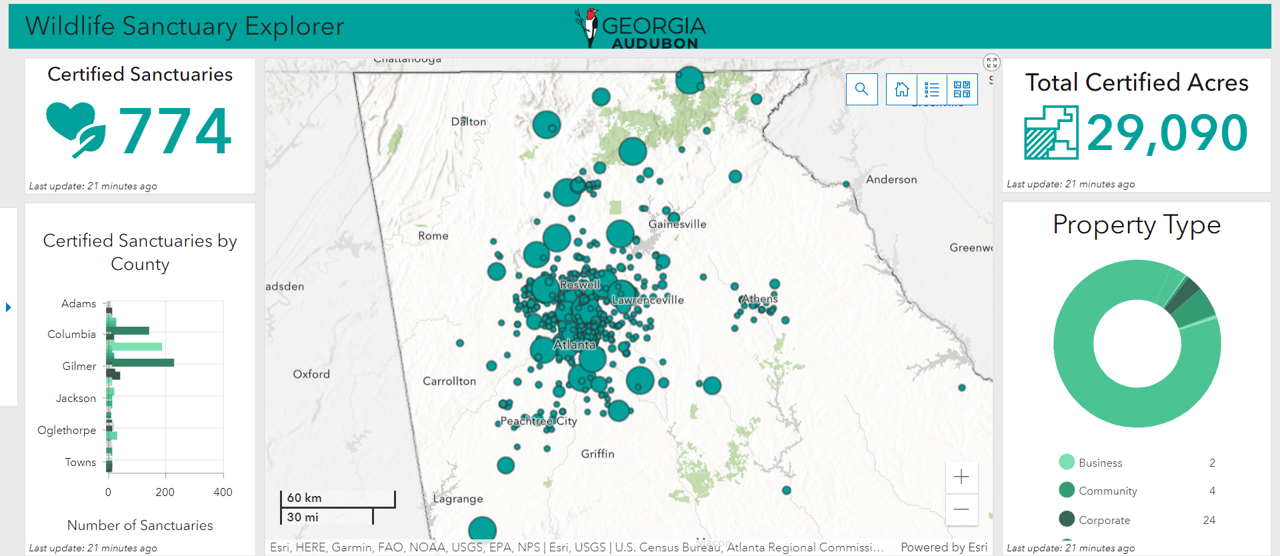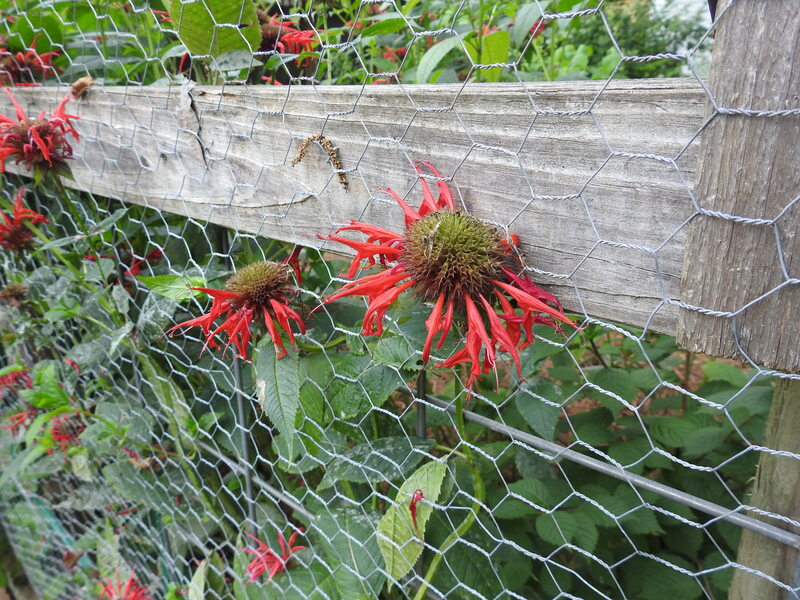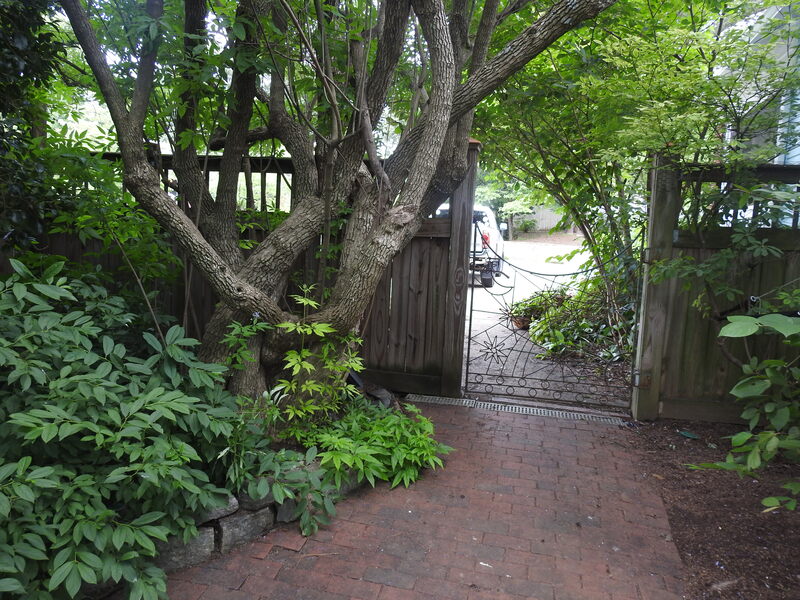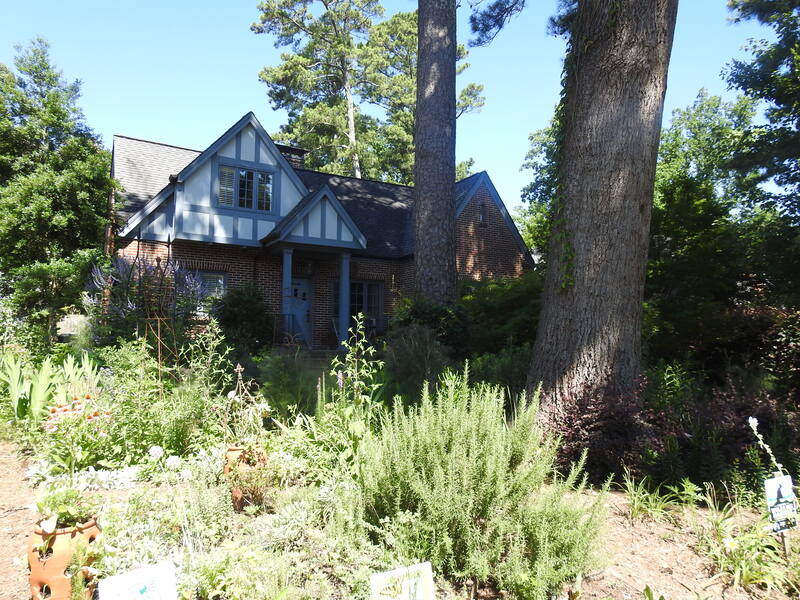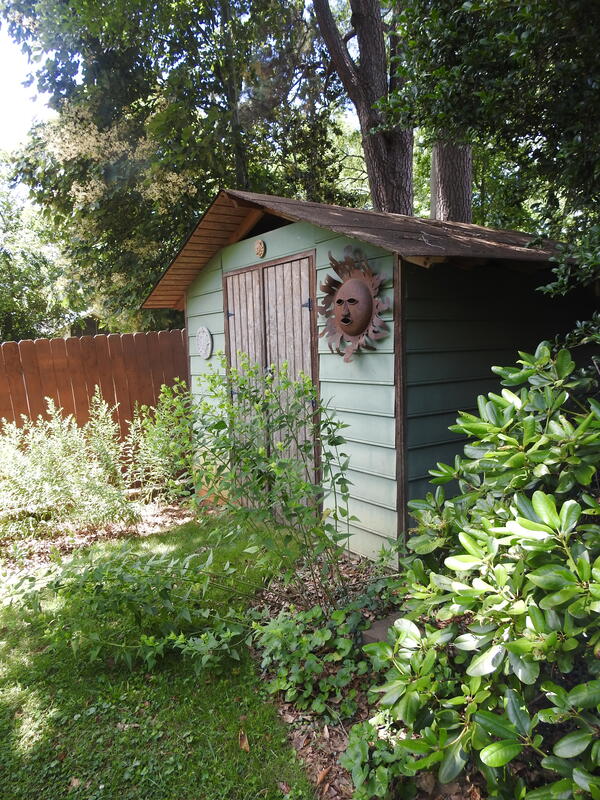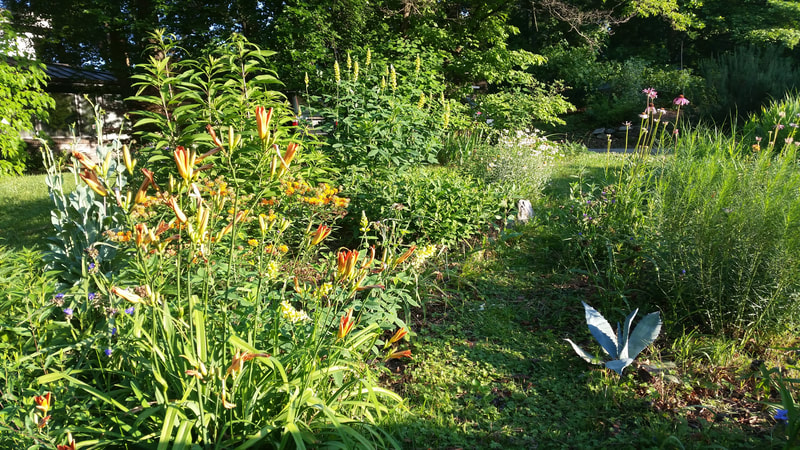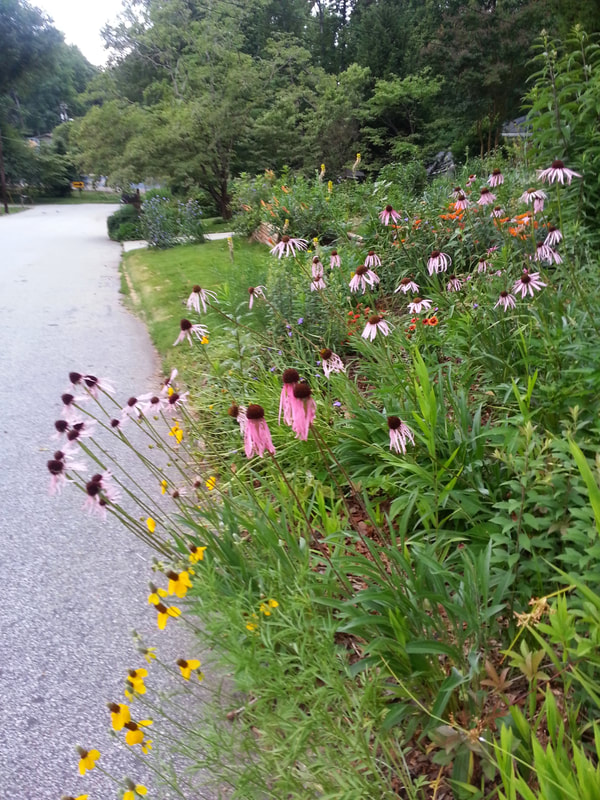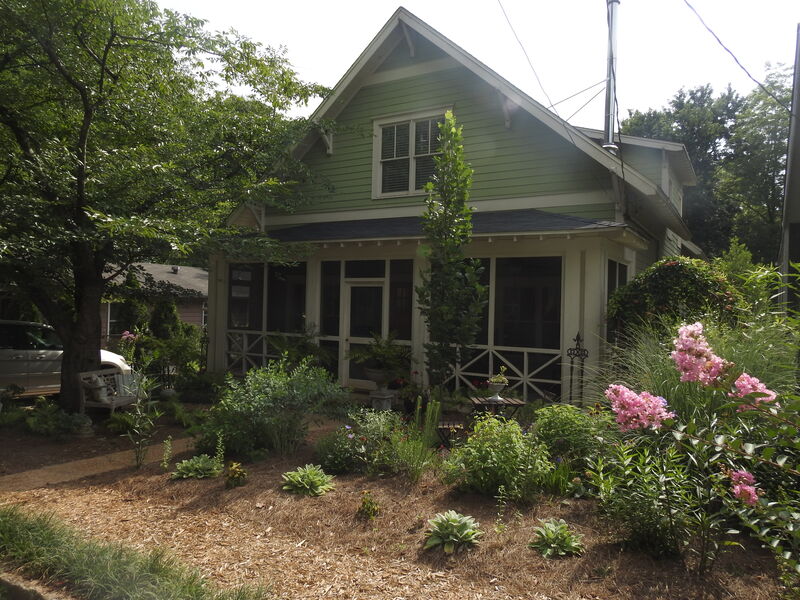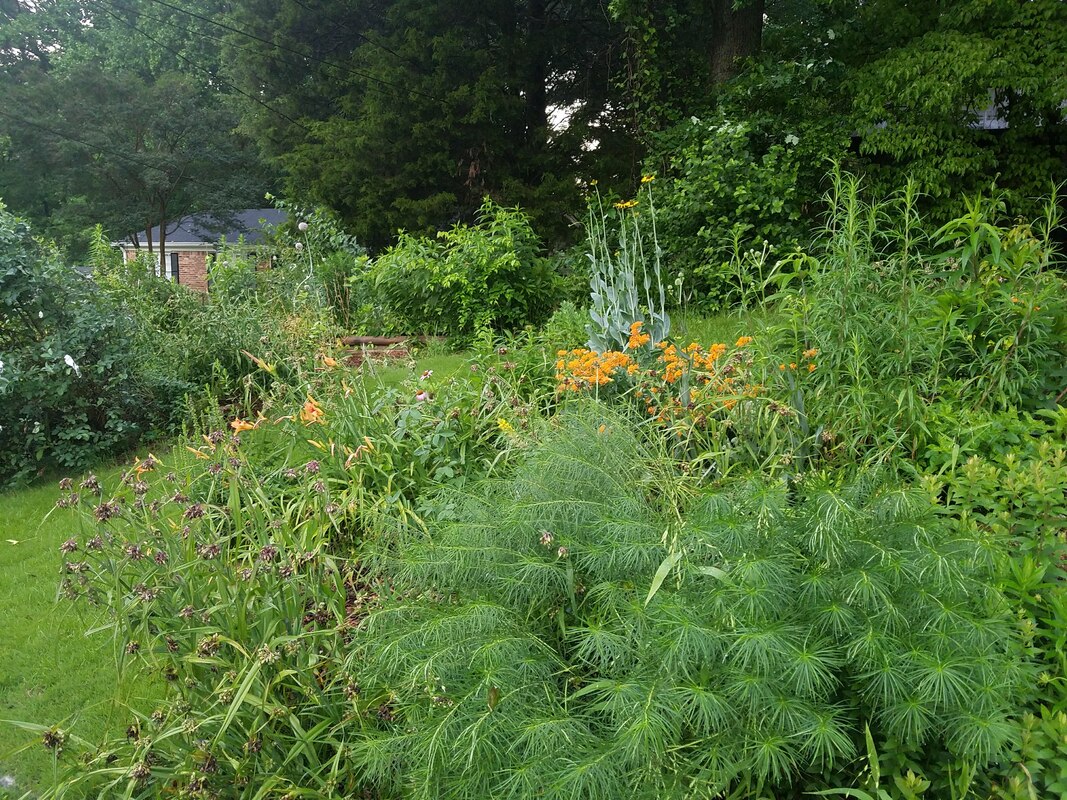Bee Balm at Tapestry Community. Photo by Dottie Head
Certify your yard as a wildlife sanctuary
|
Birds Georgia's Wildlife Sanctuary Program recognizes and encourages property owners to enhance their land for birds and other wildlife. Through planting native plants, removing or controlling non-native, invasive species, and providing food, water, and shelter, property owners can provide critical wildlife habitat and create a safe-haven for wildlife and people.
Birds Georgia's goal is to create a network of certified wildlife sanctuaries across Georgia to counter the loss and degradation of wildlife habitat. To date, Birds Georgia has certified more than 800 properties, and we are currently working with other local Audubon chapter to create a unified program that will allow us to certify properties statewide. |
Click here to view an interactive map of Birds Georgia Wildlife Sanctuaries across the state.
Take a tour of a Birds Georgia Wildlife Sanctuary in the video below.
|
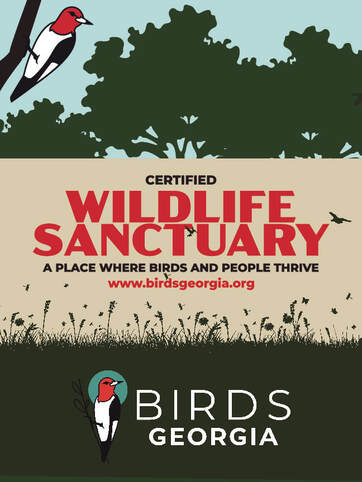
Birds Georgia's Certification Program is unique in that an Avian Advocate Volunteer Certifier will guide you throughout the process, helping you understand our bird-friendly requirements and providing support throughout the certification. Property owners who meet requirements and pass the assessment will receive a sign designating their property as a certified wildlife sanctuary. If a property does not meet certification criteria, the certifier will recommend steps that should be taken to bring the property up to certification standards and recommend a timeline for future certification.
In an effort to add more properties to our network of wildlife sanctuaries, we have developed a new, virtual certification process. This streamlined certification process will make certification available to properties across Georgia that meet our certification requirements. Properties in metro Atlanta (Barrow, Clarke, Clayton, Cobb, DeKalb, Douglas, Fayette, Fulton, DeKalb, Forsyth, Gwinnett, Henry, Jackson, Madison, Oconee, Oglethorpe, and Rockdale) or Athens (Clarke) or Oconee County areas may opt for an in-person visit from a pair of our Avian Advocate Volunteer Certifiers for the same price. Please note that assessments are carried out in the order that applications are received. Applicants may experience a delay depending on the current volume of pending applications.
If you have any questions or are interested in becoming an Avian Advocate volunteer, please email Adam Betuel.
A Birds Georgia membership is required to begin the certification process.
In an effort to add more properties to our network of wildlife sanctuaries, we have developed a new, virtual certification process. This streamlined certification process will make certification available to properties across Georgia that meet our certification requirements. Properties in metro Atlanta (Barrow, Clarke, Clayton, Cobb, DeKalb, Douglas, Fayette, Fulton, DeKalb, Forsyth, Gwinnett, Henry, Jackson, Madison, Oconee, Oglethorpe, and Rockdale) or Athens (Clarke) or Oconee County areas may opt for an in-person visit from a pair of our Avian Advocate Volunteer Certifiers for the same price. Please note that assessments are carried out in the order that applications are received. Applicants may experience a delay depending on the current volume of pending applications.
If you have any questions or are interested in becoming an Avian Advocate volunteer, please email Adam Betuel.
A Birds Georgia membership is required to begin the certification process.
Cost to Certify:
* Barrow, Clarke, Clayton, Cobb, DeKalb, Douglas, Fayette, Fulton, DeKalb, Forsyth, Gwinnett, Henry, Jackson, Madison, Oconee, Oglethorpe, and Rockdale
Note: Virtual assessments will be temporarily unavailable as we make adjustments to the format. If you are out-of-range for an in-person assessment, please email our wildlife sanctuary coordinator for next steps.
Once you have reviewed our Property Certification Guidelines and have purchased a Birds Georgia Membership, you may sign up below. After signing up, you will receive an immediate confirmation email that will include a link to an application that you must fill out to provide us with more details about your property. We look forward to adding your property to our network of certified wildlife sanctuaries!
- Birds Georgia membership (REQUIRED)
- Private residence with in-person assessment (only available in select counties*, less than 3 acres) - $75
- Private residence with virtual assessment - $75 (Temporarily unavailable: See Note below)
- Commercial/public property/school (less than 3 acres) with in-person assessment (only available in select counties*) - $100
- Commercial/public property/school (less than 3 acres) with virtual assessment- $100 (Temporarily unavailable: See Note below)
- Large property assessment (3+ acres) - please contact Conservation Program Coordinator for pricing
* Barrow, Clarke, Clayton, Cobb, DeKalb, Douglas, Fayette, Fulton, DeKalb, Forsyth, Gwinnett, Henry, Jackson, Madison, Oconee, Oglethorpe, and Rockdale
Note: Virtual assessments will be temporarily unavailable as we make adjustments to the format. If you are out-of-range for an in-person assessment, please email our wildlife sanctuary coordinator for next steps.
Once you have reviewed our Property Certification Guidelines and have purchased a Birds Georgia Membership, you may sign up below. After signing up, you will receive an immediate confirmation email that will include a link to an application that you must fill out to provide us with more details about your property. We look forward to adding your property to our network of certified wildlife sanctuaries!
Certification Process & Timeline
Prior to Certication
- Review the program requirements to ensure you understand the criteria and meet the requirements for certification.
- If you have concerns, review our Resources page for help on improving your space.
Sign up and site visit
- Once you believe your property meets the requirements stated on this page, sign up on our website.
- After sign up, you will receive an immediate confirmation email that will include a link to an application that you must fill out to provide us with more details about your property.
- Once you complete the application and submit images of your property, you will be matched with a Georgia Audubon Avian Advocate volunteer who will contact you to set up a mutually agreeable time to review your property. Please note that in-person assessments may take longer.
- During the virtual property assessment (via Zoom or Google Meet), the Avian Advocate will gather information about your property to see if it meets our program requirements (this should take roughly one hour, depending on the size/complexity of your space.)
Follow up
After the Avian Advocate assessment, you will receive an email notifying you of your certification status (Certified or In-progress) within two weeks.
- If Certified, you will receive a Birds Georgia Wildlife Sanctuary sign and be added to our list of certified properties.
- If In-Progress, the Avian Advocate volunteer will follow-up with recommendations and resources for improving your space to meet our minimum requirements along with a recommended timeline. After adjustments are made, the applicant can contact the Avian Advocate and Conservation Program Associate for one follow-up assessment at no additional cost.
- Your certification will need to be renewed (at no additional cost) every 5 years. We will contact you via email when you are due for re-certification.
Sanctuary Examples
You can view examples of some of our more exceptional properties in the photos on this page and on our YouTube Channel
Sign me up
|
Once you have reviewed the property guidelines and have purchased a Birds Georgia Membership, you may sign up below. After signing up, you will receive an immediate confirmation email that will include a link to an application that you must fill out to provide us with more details about your property. We look forward to adding your property to our network of certified wildlife sanctuaries!
|
Past iSssues of the Sanctuary Newsletter
Late Summer 2023 - Spring 2023 - Fall 2022 - Spring 2021 - Summer 2021 - Fall 2020 - Winter 2020 - Fall 2019 - Summer 2019 - Spring 2019 - Winter 2019
Subscribe to our Wildlife Sanctuary newsletter
Birds Georgia distributes a periodic newsletter for our Certified Wildlife Sanctuaries. If you are already certified or if you sign up for certification, you are automatically added to this list. Individuals who are interested in becoming an Birds Georgia Wildlife Sanctuary may sign up for this newsletter by filling out the form below. Birds Georgia never lends or sells its mailing list to anyone for any reason.

